How to get your pet used to spending more time on their own when lockdown ends
10 March 2021, 18:59
 Promoted by MoneySuperMarket
Promoted by MoneySuperMarket
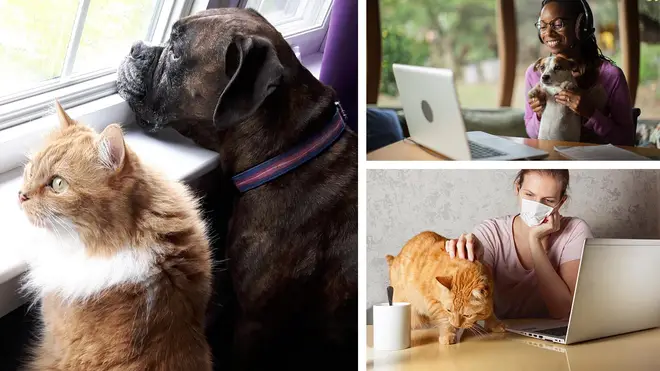
As lockdown measures across the UK begin lifting and we 'return to normal life', it's never been more important to take steps to look after your pet's mental health.
It’s not only society who will be forced to adjust when coronavirus lockdown restrictions begin to lift over the next few months - our pets are in for some major lifestyle changes, too.
For a year, our furry companions have enjoyed having their owners at home with them on an almost 24/7 basis, getting walked at random times, and seeing the same faces day in day out.
With pets also susceptible to anxiety and depression, it’s important to prepare them for their new routines and to get them used to spending a lot more time on their own.
Separation anxiety is more common in dogs than cats, who are naturally solitary and independent creatures.
It can cause negative behaviour traits including whining and barking, begging for attention, soiling indoors and becoming destructive, as well as more subtle signs like trembling and excessive grooming. It can be really distressing for the pet and their owner.
Behaviour expert Luisa Stravino from PetBuddy told Heart: “Before returning to ‘normal life’, consider investing in a pet cam and set it up where your dog or cat spends most of their time so you can spot signs of separation anxiety for example.
“Some people don’t have them, and so it's easy to be blind to how your dog is when you aren't there. People can come home and see scenes of destruction and misinterpret that behaviour when in actual fact it is separation anxiety and they just don't know it.”
Really bad cases might need you to call in a professional behaviourist to help your pooch overcome their fears with retraining and positive reinforcement.
Thankfully, there are ways to prevent anxiety from affecting your furry friend.
Here, Luisa shares her top tips for getting dogs, cats and small furries ready for life after lockdown.
Gradual changes for dogs
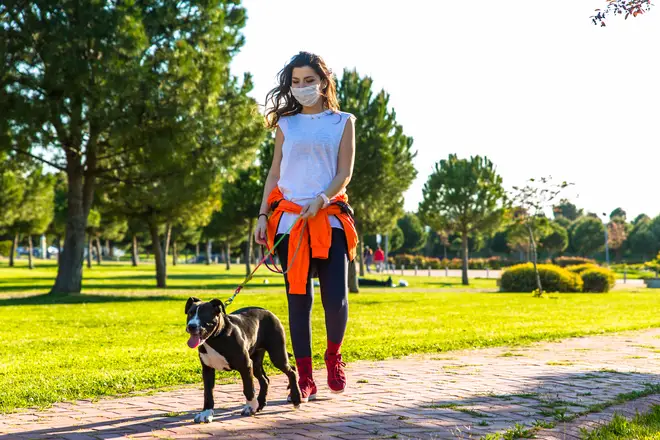
The chances are that over the past year, you’ve taken your dog for a walk whenever you’ve had a free moment in between working and home schooling.
With a return to schools and offices on the horizon, now is the time to get dogs ready for their new routine.
Luisa said: “It’s all about making gradual changes so that your pet can get used to a new routine in time.
“Owners should start to try and change the times they are currently walking their dogs to the times that they will be walked after lockdown ends.
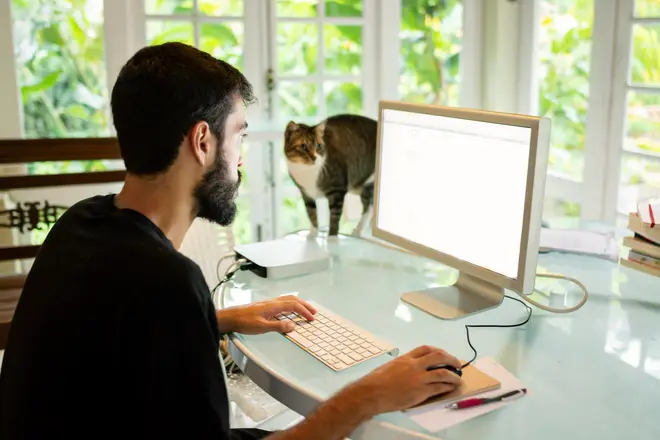
“Get them used to, or back in the routine of, a good walk at the time they are likely to be walked when you are back at work.
“If you’re going to be using a dog walker, start arranging for them to get to know your dog and exercise them now while you’re still at home. If you’re out suddenly and a stranger comes in to take them on a walk, the dog is likely to be unsettled by this. You could join some walks for a while to settle your dog in with their walker and so the transition becomes easier.”
Similarly, if you give your dog lots of fuss during the day, Luisa suggests giving them less attention during working hours, to match the times you usually won’t be at home. Give them fuss in the evening when you are likely to be back.
Make plans for puppies
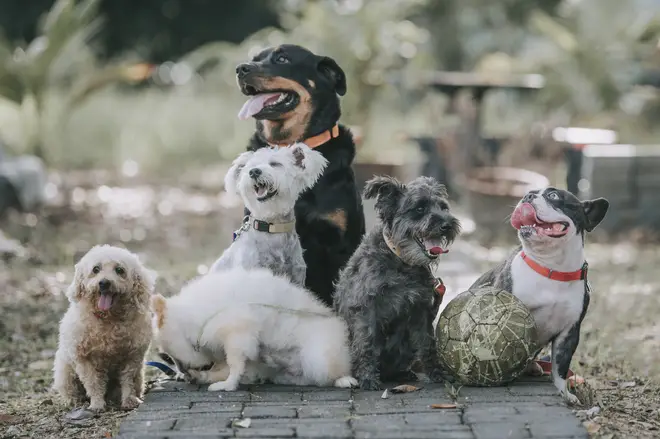
For most adult dogs, the last year of having their humans at home full-time has been an anomaly for them, but when it comes to puppies, it’s all they’ve ever known.
Luisa said: “People are going to have to practice leaving the dog again, which is much harder for a puppy as they'll only be used to you being with them.
“We’ve seen a massive surge of people getting puppies during lockdown. They’ve come home to you and are used to you being there all the time.
“It’s really important for the pup’s mental health that it gets used to being socialised with other dogs, situations, noises and people, which has been hard with social distancing and covid restrictions.”
Luisa suggests booking puppies into to a ‘doggy daycare’ where you feel appropriate that will get them used to new furry friends and other people, and not spending all day at home with you.
She added: “Do your research and make sure it’s a good, licensed day care that has been regulated and their local authority, it's a legal requirement that whatever establishment is offering day care holds an Animal Boarding Licence and many dog owners don't know about this.”
Teach them to chill
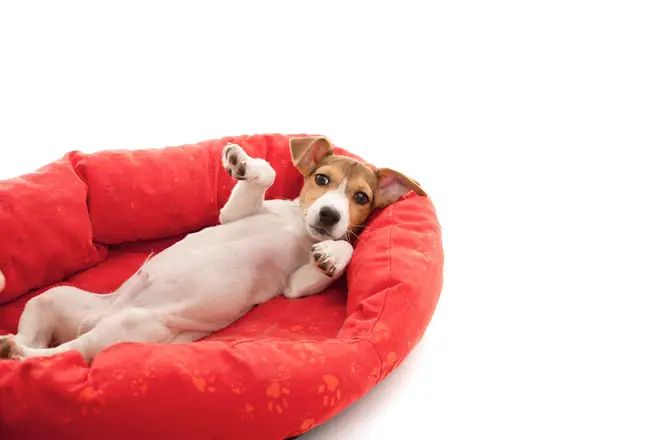
As humans, we’ve mastered the ‘art of doing nothing’, but it’s something our four-legged friends need a bit of practice with.
Luisa explained: “Take some time teaching your dog to relax in its bed switching off, having time where they are able to decompress.
“A lot of dogs are going to be unsettled when owners go back to work so the dog needs to get used to relaxing, and being at peace on its own.
“Make their bed a really nice and inviting safe space for them, you could also invest in some good quality long lasting and healthy chews to keep them busy whilst you are out.”
She also suggests getting some space between you and the dog before you return to the office to get them used to padding about at home on their own.
Luisa added: “Go out without your dog, sit in a different room, crate train your dog too just to get the dog used to being on their own, and gradually increase the time.”
Keep them busy
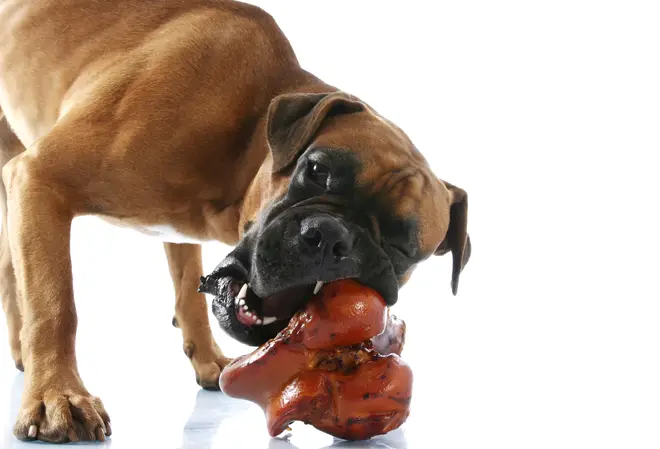
Some destructive behaviour is driven by boredom rather than anxiety, so invest in some new toys and games for your cats and dogs to busy themselves with while you’re not around.
Cats can benefit from a pheromone plug-in like Feliway or herbal calming supplements added to their wet food. You can also leave on a playlist of ‘cat music’ that will help them stay in a state of zen while you’re not at home.
For dogs, canine CBD oil can help them cope with changes, or put a few drops of special pet Rescue Remedy in their water or orally- this is suitable for cats, too.
Luisa said: “Give your dog something to do when you’re not there to keep them busy and tire them out.
“Leaving them with a big natural treat to gnaw on is a great way to keep busy. You can also buy interactive toys, like wobbly Kongs, that dogs need to use their intelligence to get treats out of.
“Also, don’t be afraid to repurpose things from around the house. Collect old plastic bottles, put a few holes in them and add some treats before stringing them across the kitchen using a washing line. This will create a fun game where the dog has to boop them with his or her nose to get a reward.
“Similarly, soak a tea towel in chicken broth before wrapping it tightly around some treats. They’ll love the challenge, and it will taste great.”
Small furries and other pets
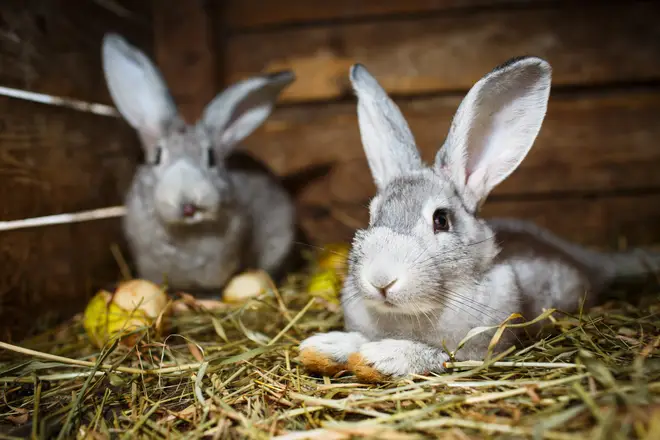
For smaller pets, like rodents and lizards, you don’t need to worry as much about separation anxiety - although they’re sure to enjoy some new enrichment and treats in their enclosures.
Luisa said: “For any animal used to having you around all the time it will be a shock to them.
“But different animals have different sleep patterns, hamsters and guinea pigs will sleep all day.”


































